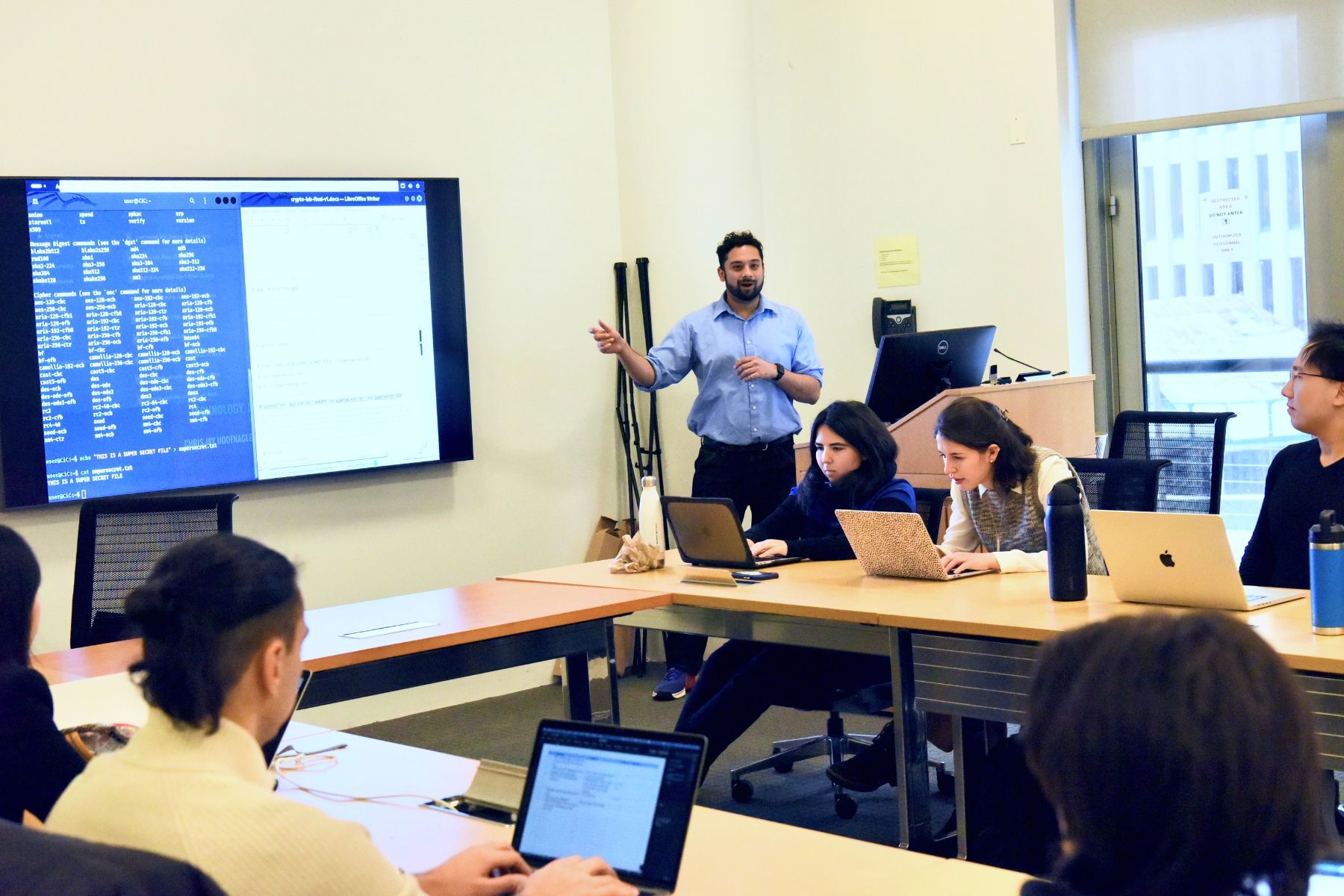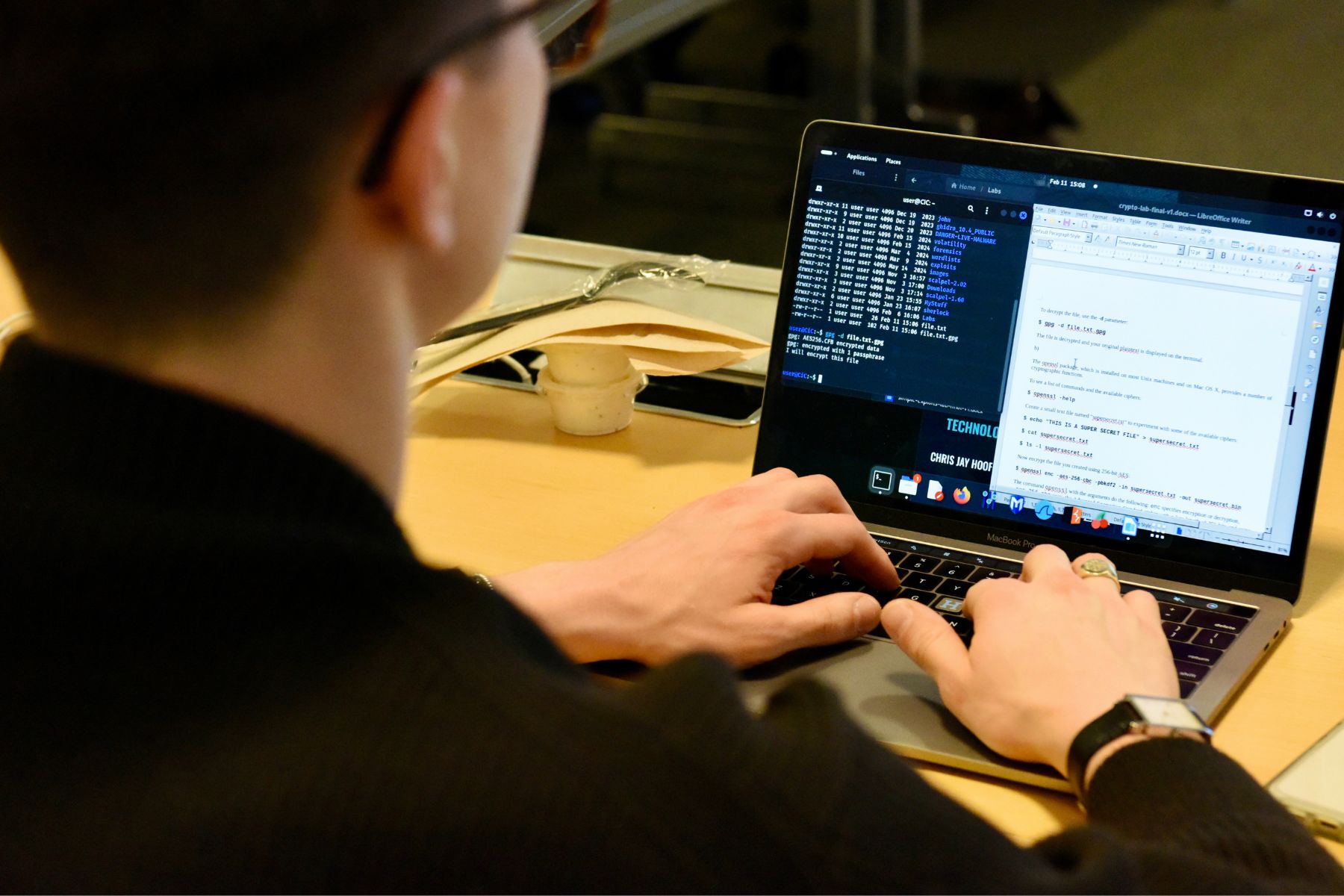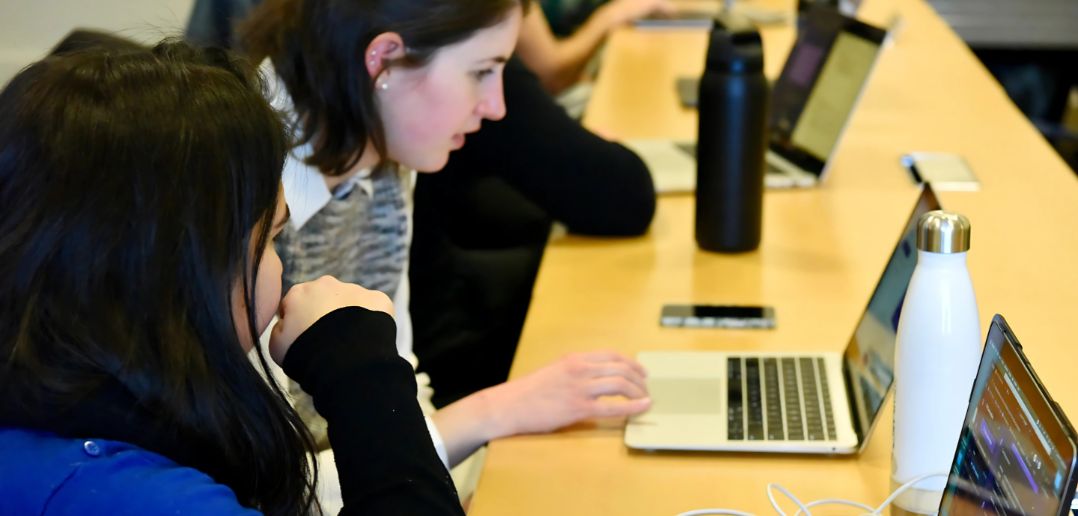Dean Joseph Landau has identified law and technology as a strategic priority for legal education at Fordham Law. One of the ways law students are learning about the topic is through Professor Aniket Kesari’s new Cybersecurity Law class, which provides hands-on training for students to immerse themselves in cutting-edge cyber issues.
The U.S. Bureau of Labor Statistics projects a 33% increase in cybersecurity jobs by 2033. “Within law, that’s a bit harder to pinpoint,” says Kesari. “But most big firms now have a privacy and cybersecurity practice area. This is a big growth area, and they’re looking for people with these sorts of skills.”
Cybersecurity law is complicated, according to Kesari, “it’s not really one body of law in and of itself. Because of the variety of ways that it intersects with different aspects of our lives, certain areas of law have different things to say about cybersecurity.”

Having a functional understanding of encrypted data, coding, and even artificial intelligence can help lawyers navigate the intersection of tech and law. “If you’re going to be a cybersecurity lawyer, you will be talking to the chief information security officer, the engineers, the product people, the marketing people,” said Kesari. “You need to have some technical knowledge to be able to go back and forth between these various teams, to understand what happened and how to respond.”
While more and more students are interested in these novel areas of law, few have had any technical training. The labs in Kesari’s curriculum are a key element of the course. He says this type of in-depth, interdisciplinary training is rarely found at other law schools, though it will be key to excelling in this field.
The labs integrate instruction on technical subjects, such as encrypted data and coding, with activities involving real-world legal simulations. A recent session included a lab where students learned how to use an encryption program, so they could detect when data is hacked or manipulated, and then walked through an example scenario on how to develop a hypothetical company’s data breach notification according to state and federal laws.

Kesari’s scholarly work and research involves machine learning, cybersecurity, and artificial intelligence, which makes him well suited for teaching this new course. He holds a J.D. from Yale University and Ph.D. in jurisprudence and social policy from UC Berkeley.
“Professor Kesari makes it really accessible for those that don’t have that technical background,” said Julia Davidson ’26, who is taking Kesari’s class this semester. Davidson, a former English teacher, identifies as a student without technical training and has gained a lot from the labs in the cybersecurity course.
“When we’re dealing with something that is so technical and also conceptual, being able to test it out, even if it’s on a very simple and basic level, is a completely different learning experience,” said Davidson. “The labs are unlike anything that I’ve done in a law school class.”

